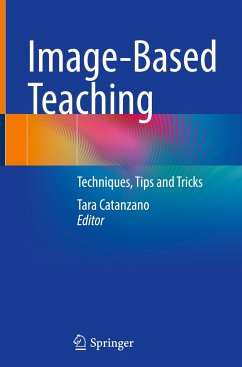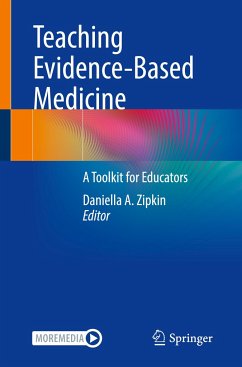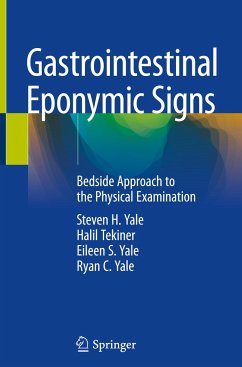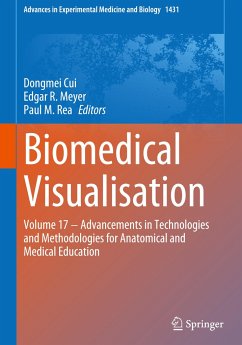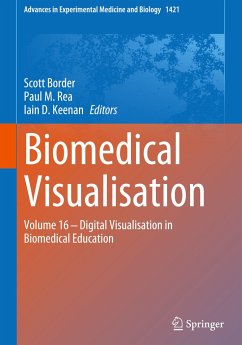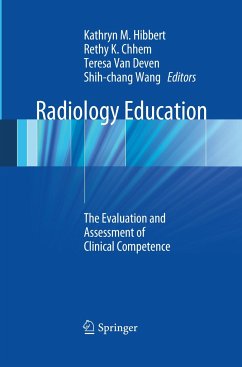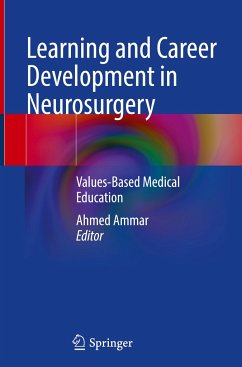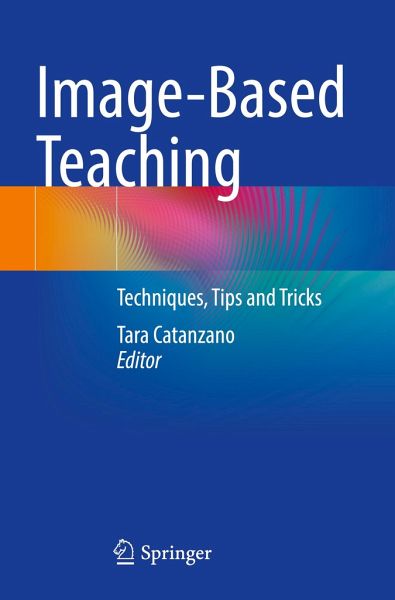
Image-Based Teaching
Techniques, Tips and Tricks
Herausgegeben: Catanzano, Tara
Versandkostenfrei!
Versandfertig in 6-10 Tagen
76,99 €
inkl. MwSt.

PAYBACK Punkte
38 °P sammeln!
This book offers detailed information on a variety of teaching techniques for radiology. Generational differences in communication and adult learning theory have led to changes in educational content delivery. Traditional didactic teaching methods are no longer embraced by students, requiring educators to learn and adopt new techniques. Radiologists currently in practice have little or no experience with these newer techniques, some thrust upon them abruptly by the COVID pandemic. In addition to practicing radiologists, the next generation of educators are currently in training and often do no...
This book offers detailed information on a variety of teaching techniques for radiology. Generational differences in communication and adult learning theory have led to changes in educational content delivery. Traditional didactic teaching methods are no longer embraced by students, requiring educators to learn and adopt new techniques. Radiologists currently in practice have little or no experience with these newer techniques, some thrust upon them abruptly by the COVID pandemic. In addition to practicing radiologists, the next generation of educators are currently in training and often do not receive instruction on educational theory and teaching techniques. It is incumbent upon members of the educational sphere to provide resources for these individuals. This work intends to provide just such a resource.
The objectives of the book include:
Explaining adult learning theory and brain-friendly teachingDescribing teaching techniques to leverage brain-friendlyteachingReinforcing key points with links to online video-based lectures as an accompaniment to the text
Topics covered across chapters include helping non-teaching faculty to teach, writing high quality MCQ questions, and teaching quality, safety, and professionalism. Each chapter will have one "key takeaway" chart at the conclusion of the chapter with high-yield key points highlighted in a bulleted format.
This is an ideal guide for practicing radiologists, including those not currently working in academic centers. Faculty in non-academic centers can specifically benefit from chapters related to medical student, clinician and patient education. Future academic radiologists (i.e., fellows and residents) can benefit from the text as a foundation for careers in teaching hospitals and academic medical centers.
The objectives of the book include:
Explaining adult learning theory and brain-friendly teachingDescribing teaching techniques to leverage brain-friendlyteachingReinforcing key points with links to online video-based lectures as an accompaniment to the text
Topics covered across chapters include helping non-teaching faculty to teach, writing high quality MCQ questions, and teaching quality, safety, and professionalism. Each chapter will have one "key takeaway" chart at the conclusion of the chapter with high-yield key points highlighted in a bulleted format.
This is an ideal guide for practicing radiologists, including those not currently working in academic centers. Faculty in non-academic centers can specifically benefit from chapters related to medical student, clinician and patient education. Future academic radiologists (i.e., fellows and residents) can benefit from the text as a foundation for careers in teaching hospitals and academic medical centers.



